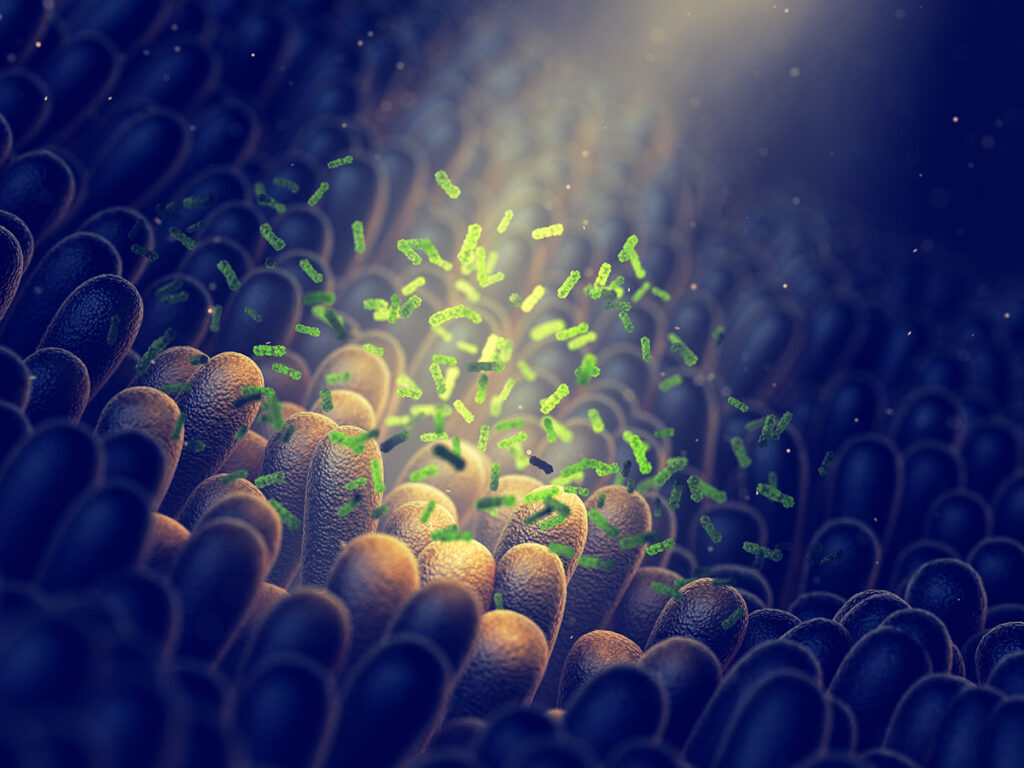Making sense of gut health and why it matters
Of all the love poems ever written, they all seemed to focus on the heart, as if this singular organ was more than a glorified pump. Even Rumi failed to get lyrical about the intestines, despite their sinewy silken lining, their miraculous membranes of blood vessels, the rhythmic undulation of cilia, their constant gurgle and grumble a song in itself. While there are still few poems on the matter, definitely the media is inundated with talk of the gut.
The information the scientific world is pumping out at breakneck speed has our heads spinning. How many probiotics do we need? (Some.) Will Akkermansia make us thinner? (No.) Should we ferment our own vegetables? (If we have time and want our house to smell like bubbling cabbage.) What is rewilding the gut? (Basically, eating dirt.)
It’s hard to know what is right for your gut and why it matters. We’ll break it down to some basics here:
Why gut health matters: Those smart scientists have found thousands of links between the microbiome (the incredible system of bacteria, fungus, parasites, friendlies and unfriendlies) in our intestines and our body functions. Some strains protect us from UV rays. Others aid in the metabolism of B vitamins. Others are key in manufacturing serotonin—that happy, calming hormone we’re all desperate for this time of year. Scientists have found gut health to impact blood sugar regulation, mental health, hormones, cancer risk, inflammatory disease, immunity, skin health and more. The bottom line is that a healthy gut promotes a healthy body.

What makes a healthy gut: The environment and the bacteria colonies. When we do things that change the gastrointestinal (GI) environment, it can promote the growth of problematic bacteria while reducing the number of good bacteria. For the most part, a GI tract with good variety will maintain balance and eradicate the riffraff on its own. But long-term bad habits or illness can tip the scales and make it hard to feel right again.
The primary culprits: Diets high in sugar, processed foods, or alcohol are the clear culprits. They promote inflammation that changes which bacteria thrive, turning your gut into a dive bar of seedy characters and a few late-night survivors of a bachelorette party. Other disruptors are antibiotics, in particular long-term or repetitive use. Fake sugars like aspartame are also known gut-disruptors, as is stress, poor sleep, and the grand-daddy of them all, smoking. This refers to all smoking, including marijuana.
The best supportive habits for a healthy gut: Not surprisingly, the same prescription for optimal weight, cardiac health, mental health, bone health, healthy cholesterol, cancer prevention … or just health is the same: Eat whole foods and plenty of vegetables. Whole grains, nuts, seeds and legumes are loaded with fiber that promotes digestion and “good” bacteria growth. Vegetables and leafy greens, especially those from a garden or farmers’ market, are covered in soil-based organisms that bring variety to our biomes. Fermented foods such as yogurt, kefir and sauerkraut are loaded with essential strains of bacteria like lactobacillus.
Knowing what is right for your own gut depends on your health history and your diet. If you’ve taken a lot of antibiotics, chances are your balance is a bit off. You may benefit from a broad-spectrum probiotic. If you’ve been eating a lot of processed foods and sugar, you’ll benefit from focusing on whole foods and a fiber-rich diet for a while. If you’re a data nerd and don’t mind pooping in a box once, many companies are offering stool analysis and “individualized” probiotics. (The quotes merely imply they are individualized to your current gut bacteria, but not your genetic makeup, your diet, or your medical history.)
And, as always, the same advice stands: Eat more vegetables.
Ammi Midstokke has been a functional nutritionist for a decade, saving the world one vegetable at a time.












